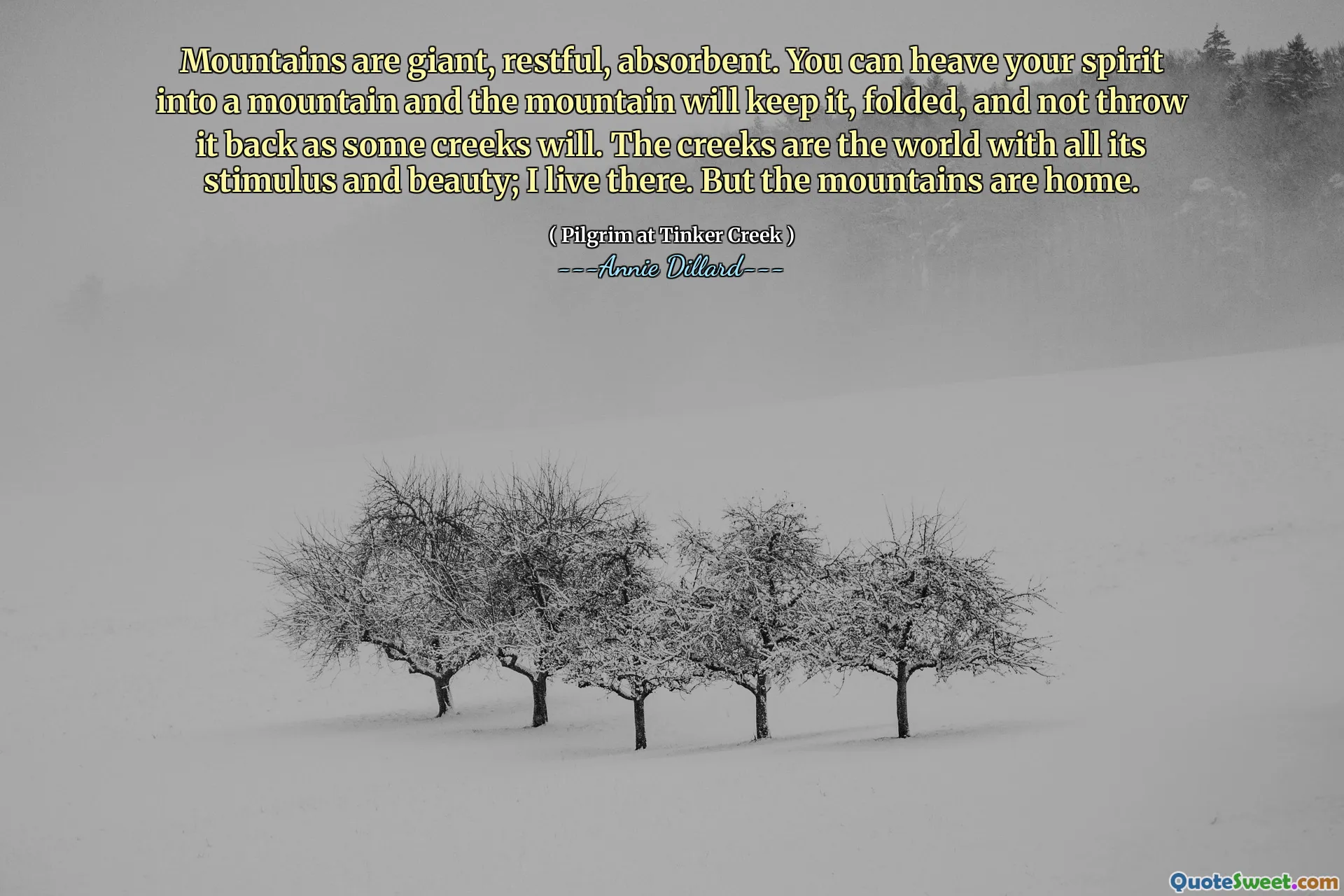
Mountains are giant, restful, absorbent. You can heave your spirit into a mountain and the mountain will keep it, folded, and not throw it back as some creeks will. The creeks are the world with all its stimulus and beauty; I live there. But the mountains are home.
The imagery used in this quote beautifully captures the profound relationship between humans and nature, especially the contrasting qualities of mountains and creeks. The mountains are portrayed as colossal entities—restful, absorbing, and almost nurturing in their silent strength. When the author speaks of heaving one's spirit into a mountain and having it kept safely, it evokes a sense of spiritual refuge and peace that the mountains offer—a sanctuary where one's innermost feelings can be held securely, away from chaos or superficial stimuli. This contrasts with the creeks, which are described as vibrant and stimulating, embodying the dynamic energy of the world—beauty, movement, and sensory overload—that energizes the senses. The creek metaphor reminds us of the fleeting, ever-changing facets of life and the external world, full of stimuli that fill our senses with wonder but can also be overwhelming. Living amidst these 'creeks' signifies experiencing the world's vibrance, yet recognizing the need for a stable anchoring that the mountains provide. The mountain as 'home' reveals a yearning for grounding, endurance, and solitude amidst the tumult of life's stimuli. It speaks to the universal human desire for a spiritual refuge—a place of peace where one can rest and reflect. The metaphor extends beyond nature, touching on internal states of being—seeking stability, depth, and the comfort of something enduring amidst life's constant flux.

